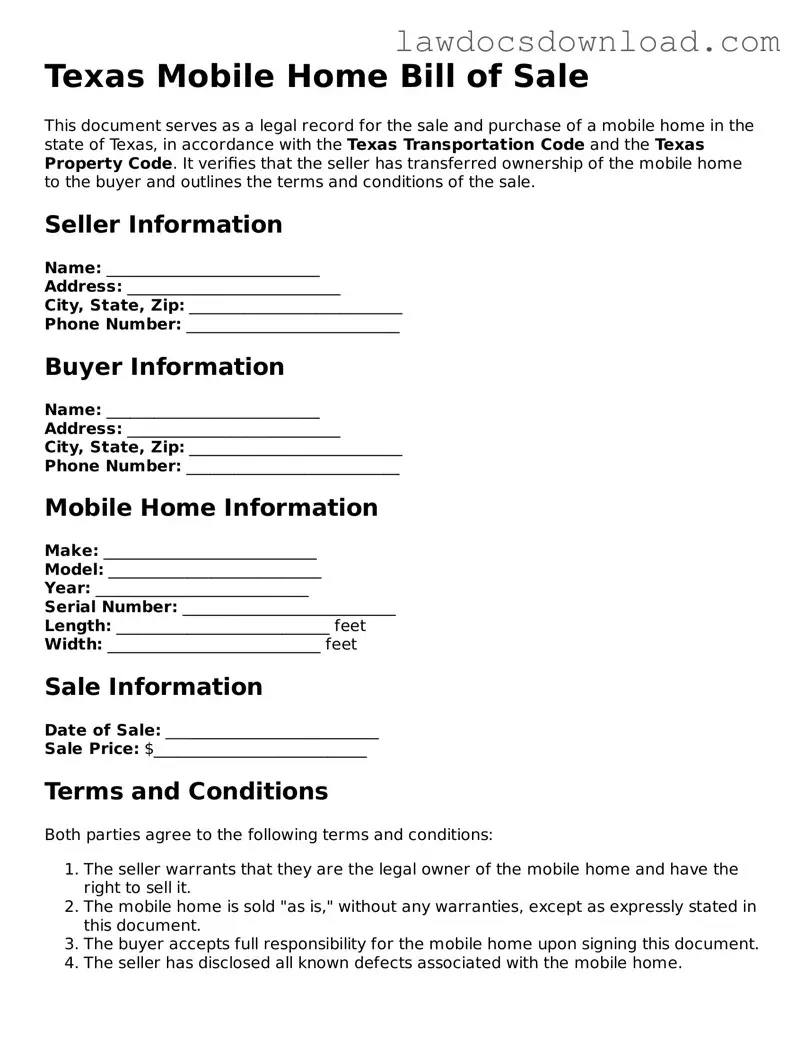Legal Texas Mobile Home Bill of Sale Form
A Texas Mobile Home Bill of Sale form is a legal document used to record the transfer of ownership of a mobile home from the seller to the buyer within the state of Texas. This document serves not only as a receipt for the transaction but also as proof of the change in ownership. It is essential for the protection of both parties involved in the transaction.
Launch Mobile Home Bill of Sale Editor Here

Legal Texas Mobile Home Bill of Sale Form
Launch Mobile Home Bill of Sale Editor Here

Launch Mobile Home Bill of Sale Editor Here
or
Free Mobile Home Bill of Sale
Get this form done in minutes
Complete your Mobile Home Bill of Sale online and download the final PDF.